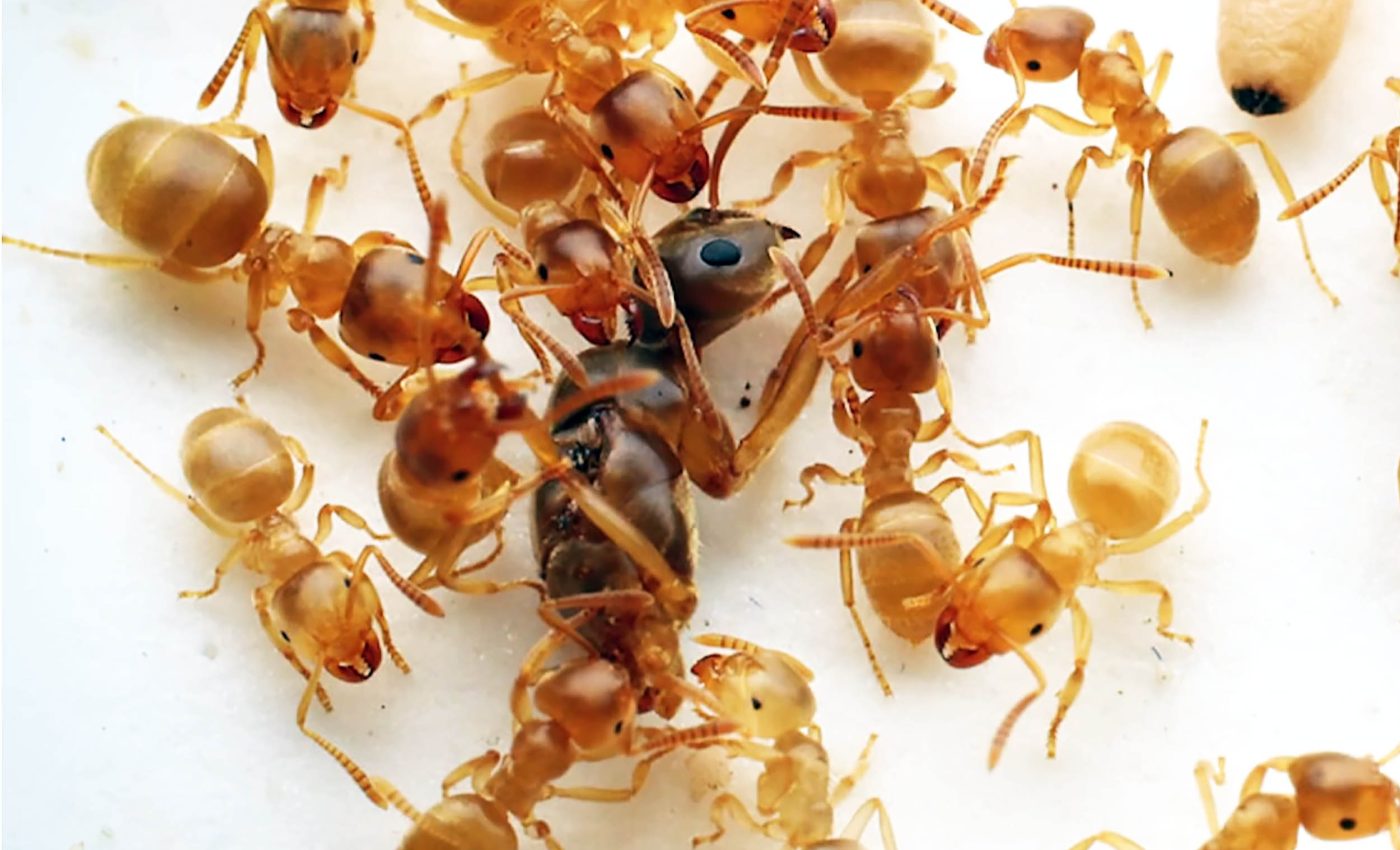
Parasitic ant queen tricks workers into killing their own mother
Scientists have documented a startling new twist in social parasitism: an invading ant queen infiltrates a colony, manipulates the workers, and persuades them to kill their own mother.
After the assassination, the interloper assumes power, and the colony begins raising her offspring as if nothing happened.
The findings reveal a third-party form of matricide that overturns long-held assumptions about how mothers and offspring come into conflict.
“At first, I wanted the title of this study to exemplify a fable where a daughter is tricked to kill their mother,” said lead author Keizo Takasuka from Kyushu University.
“I asked ChatGPT if this kind of matricide appears in a fictional story, but it said no such story exists. So, this is an example of nature going beyond what we’ve seen in fiction.”
Nobody gains from the kill
Matricide in nature is rare but when it happens, it usually confers some advantage to either the mother or the young. Here, neither wins.
The only beneficiary is the parasitic queen who engineers the deed and then reaps the reproductive rewards.
“Up until now, only two types of matricide have been recorded in which either the mother or offspring benefit,” said Takasuka. “In this novel matricide that we reported, neither profit; only the parasitic third party.”
The ants behind the odor
The study centers on two social parasites, Lasius orientalis and Lasius umbratus, nicknamed “bad-smell ants” in Japan, and their unsuspecting hosts, Lasius flavus and Lasius japonicus.
Like many ants, they live in a world ruled by scent. Colonies recognize nestmates through a distinctive chemical blend, and any ant that smells wrong is treated as an intruder.
“Ants live in the world of odors,” Takasuka said. “Before infiltrating the nest, the parasitic queen stealthily acquires the colony’s odor on her body from workers walking outside so that she is not recognized as the enemy.”
That chemical camouflage allows her to slip past the guards and into the brood chamber, where the resident queen lives surrounded by her daughters.
How the queen tricks worker ants
Once accepted by the workers, the intruder finds the queen and unleashes her real trick. She releases a foul-smelling spray – presumed to be formic acid – directly onto the host queen.
The blast doesn’t kill. It does something more insidious: it overwrites the queen’s normal scent with a repellent signature.
“The parasitic ants exploit that ability to recognize odors, we believe, by spraying formic acid to disguise the queen’s normal scent with a repugnant one,” Takasuka said. “This causes the daughters, who normally protected their queen mother, to attack her as an enemy.”
The attacker doesn’t stick around. Knowing that the same stench could make workers turn on her, the parasite retreats immediately after spraying.
“She knows the odor of formic acid is very dangerous, because if host workers perceive the odor they would immediately attack her as well,” Takasuka added.
The parasitic ant returns periodically to reapply the chemical until the workers finish the job and drag their mother’s body out of the nest.
A new queen ant emerges quietly
With the resident monarch gone, the intruder steps back into the nursery, no longer carrying the damning scent.
She begins laying eggs, and the workers – now queenless and primed to care for brood – switch allegiance without a fight.
The colony continues, but its genetic legacy has been hijacked. All future workers will be the parasite’s daughters.
Social impacts on the ant colony
Ant social parasitism is not new, and many species gain entry by disguising themselves chemically. Some even dispatch the queen personally.
But this study captures a different mechanism. The parasite doesn’t do the killing but rather weaponizes the colony’s own recognition system so the workers do it for her.
That’s a cleaner, lower-risk strategy that may be more widespread than previously realized wherever ants rely on formic acid and odor cues to keep order.
The finding also expands the taxonomy of matricide in nature. This is not a resource transfer from mother to young, nor an offspring-driven revolt with fitness payoffs for the patricidal brood. It’s a third-party manipulation that exploits the colony’s social glue.
Could other ants do this?
Only ants in the subfamily Formicinae produce formic acid, so similar behavior would likely require different chemistry in other groups. Still, the authors see room to look beyond these species.
For now, the study offers a bracing reminder: in insect populations, smell is identity, and identity can be hacked.
When that happens, even the most protected figure in the colony can be recast as an enemy by a few well-aimed drops of the wrong perfume.
The study is published in the journal Current Biology.
—–
Like what you read? Subscribe to our newsletter for engaging articles, exclusive content, and the latest updates.
Check us out on EarthSnap, a free app brought to you by Eric Ralls and Earth.com.
—–













